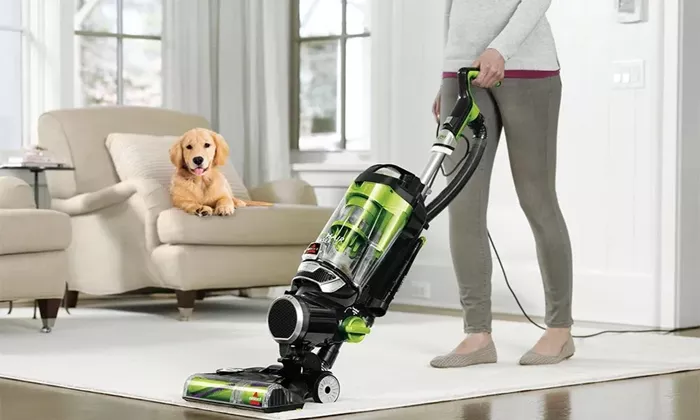Sweeping is a fundamental part of maintaining cleanliness in various environments, including homes, offices, and public spaces. Sweepers play a crucial role in this process, ensuring that dirt, dust, and debris are efficiently removed from floors and surfaces. This article will explore the many reasons why sweepers are important, delving into their benefits, types, and proper usage.
Efficiency in Cleaning
Quick and Thorough Cleaning
Sweepers are designed to cover large areas quickly, making them much more efficient than manual cleaning methods. This is especially important in commercial settings where time is of the essence. Sweepers can clean more thoroughly, ensuring that even fine dust particles are picked up.
Consistent Performance
Unlike manual cleaning, which can vary in quality depending on the person doing the work, sweepers provide consistent cleaning performance. This consistency is vital in maintaining a high standard of cleanliness in any environment.
Reduced Physical Strain
Using a sweeper significantly reduces the physical strain on the person doing the cleaning. Manual sweeping can be tiring and lead to repetitive strain injuries over time. Sweepers, especially automated ones, take on the bulk of the physical work, making the cleaning process less taxing.
Health Benefits
Dust and Allergen Control
One of the primary benefits of using sweepers is their ability to control dust and allergens. Regular sweeping with a high-quality sweeper can remove dust mites, pet dander, and other allergens from the environment. This is crucial for maintaining good indoor air quality and reducing allergic reactions.
Reduced Respiratory Issues
By effectively removing dust and allergens, sweepers help reduce respiratory issues. People with asthma or other respiratory conditions benefit greatly from environments that are regularly cleaned with sweepers.
Bacteria and Germ Reduction
Many sweepers are designed to pick up not just visible dirt but also microscopic particles, including bacteria and germs. This helps create a healthier environment, reducing the spread of illnesses.
Types of Sweepers
Manual Sweepers
Manual sweepers are simple, non-electric devices that require physical effort to push and maneuver. They are suitable for small areas and offer a cost-effective cleaning solution. Manual sweepers are typically used in residential settings or small businesses.
Electric Sweepers
Electric sweepers are powered devices that make sweeping more efficient. They come in various sizes and are suitable for both small and large areas. Electric sweepers are commonly used in commercial settings such as offices, malls, and hospitals.
Robotic Sweepers
Robotic sweepers are automated devices that clean floors with minimal human intervention. They are equipped with sensors to navigate around obstacles and can be programmed to clean at specific times. Robotic sweepers are gaining popularity in both residential and commercial settings due to their convenience and efficiency.
Industrial Sweepers
Industrial sweepers are heavy-duty machines designed for large spaces like warehouses, factories, and streets. They come in ride-on and walk-behind models and are built to handle tough cleaning tasks. Industrial sweepers are essential for maintaining cleanliness in large-scale operations.
See Also: Do Carpet Sweepers Really Work?
Environmental Impact
Reduction of Chemical Use
Sweepers can reduce the need for chemical cleaners. By effectively removing dirt and debris, they minimize the reliance on harsh chemicals that can be harmful to the environment. This contributes to more sustainable cleaning practices.
Energy Efficiency
Many modern sweepers are designed to be energy-efficient. Electric and robotic sweepers, in particular, use less energy compared to traditional cleaning methods. This not only saves on energy costs but also reduces the overall carbon footprint.
Waste Reduction
Sweepers help in reducing waste by capturing debris that would otherwise end up in landfills. Some advanced sweepers even come with recycling capabilities, further promoting environmental sustainability.
Economic Benefits
Cost-Effective
While the initial investment in a sweeper might be higher compared to traditional cleaning tools, the long-term savings are significant. Sweepers reduce labor costs by decreasing the time required for cleaning and minimizing the need for multiple cleaning staff.
Extended Lifespan of Flooring
Regular sweeping extends the lifespan of flooring materials. Dirt and debris can cause scratches and wear on floors. By removing these particles, sweepers help maintain the integrity of the flooring, reducing the need for costly repairs and replacements.
Increased Productivity
In commercial settings, clean environments lead to increased productivity. Employees are more likely to perform better in a clean and organized workspace. Sweepers help maintain this level of cleanliness, contributing to overall business efficiency.
Usage and Maintenance Tips
Choosing the Right Sweeper
Selecting the appropriate sweeper depends on the specific needs of the space. Consider factors such as the size of the area, the type of debris, and the frequency of cleaning required. For instance, a robotic sweeper might be ideal for daily maintenance in an office, while an industrial sweeper would be necessary for a warehouse.
Regular Maintenance
To ensure sweepers operate efficiently, regular maintenance is essential. This includes checking and replacing brushes, emptying debris containers, and ensuring all parts are functioning correctly. Proper maintenance extends the lifespan of the sweeper and ensures optimal performance.
Safe Operation
Safety should always be a priority when using sweepers. Follow the manufacturer’s instructions for operation and maintenance. Ensure that all operators are trained in using the equipment safely. This reduces the risk of accidents and ensures that the sweeper is used effectively.
Conclusion
Sweepers are indispensable tools in the quest for cleanliness. Their ability to efficiently and effectively remove dirt, dust, and debris makes them a crucial part of any cleaning regimen. From improving health outcomes by reducing allergens and bacteria to offering economic and environmental benefits, the importance of sweepers cannot be overstated. Whether in homes, offices, or industrial settings, the right sweeper can transform the cleaning process, making it more efficient, cost-effective, and sustainable. Investing in a high-quality sweeper is not just a step towards cleanliness but also a commitment to creating healthier, more productive environments.

